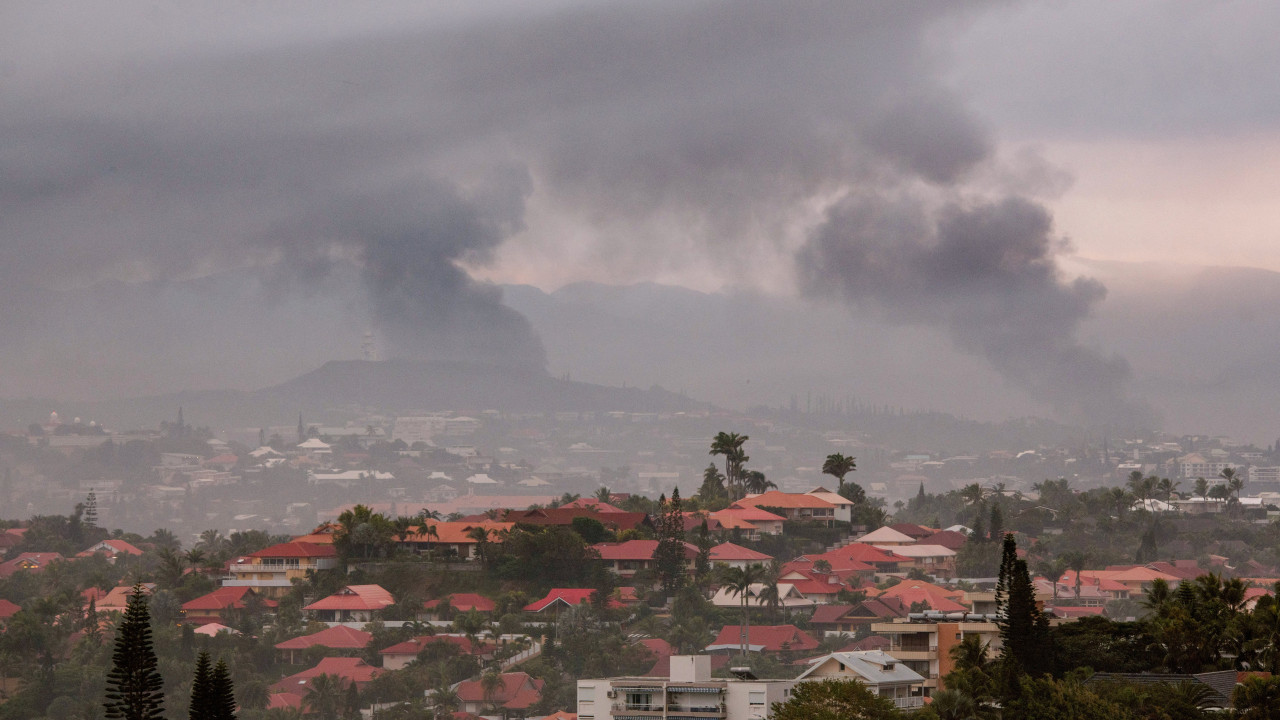
A French Government spokesperson, Prisca Thevenot, announced the decision after a meeting of the Council of Ministers this afternoon in Paris. The decision follows days of unrest in that South Pacific territory and what Thevenot described as “scenarios of chaos”, with four deaths recorded, including that of a security service agent.
The emergency measures give authorities more powers to combat unrest, including the possibility of placing under house arrest people considered a threat to public order in the territory, where independence supporters have long fought to free themselves from France.
“The priority is to restore order, calm and serenity,” said the spokeswoman for the French executive.
The state of emergency will come into force at 05:00 today in New Caledonia (19:00 in Lisbon).
More than 300 people have been injured since Monday, when protests against a constitutional review promoted by Paris, which changes the voter registration, removing weight from indigenous peoples, turned violent. According to French authorities, more than 130 arrests were made.
There have been tensions in the archipelago for decades between the indigenous Kanaks, who want independence, and the descendants of the colonizers, who want to remain part of France.
Police reinforcements were ordered to be sent to the territory, to help local security forces, who have been confronted with violent protesters. The Ministry of the Interior said that another 500 agents are expected within a few hours in the archipelago to reinforce the 1,800 police and national guards already there.
This week’s disturbances began when the French parliament was debating in Paris the amendment of the French Constitution to modify the electoral rolls in New Caledonia.
Today, the National Assembly approved a bill that, among other changes, allows residents of New Caledonia for ten years to vote in provincial elections.
Opponents say the move will benefit pro-French politicians in New Caledonia and further marginalize the indigenous Kanak people, who have in the past been subject to a policy of strict segregation and widespread discrimination.
The vast archipelago of around 270,000 people east of Australia is ten time zones ahead of Paris.
In the capital, French President Emmanuel Macron today stressed the need for political dialogue, and local opposing political parties issued a joint appeal for calm in New Caledonia, saying in a statement: “We must continue to live together.”
The mandatory overnight curfew in New Caledonia was extended until Thursday, and schools and the main airport remained closed today, said the French Government’s representative in the territory, High Commissioner Louis Le Franc, adding that some residents of the capital and neighboring municipalities formed “self-defense groups” to protect their homes and commercial establishments.
New Caledonia became French in 1853, under the command of Emperor Napoleon III, Napoleon’s nephew and heir. It became an overseas territory after the Second World War, and all Kanaks were granted French nationality in 1957.
In 1988, a peace agreement was reached between the rival factions. A decade later, France promised to grant New Caledonia political power and broad autonomy and organize up to three successive referenda.
The three referendums were held between 2018 and 2021, and the majority of voters chose to remain part of France, rather than supporting independence.
The pro-independence Kanak people rejected the results of the last 2021 referendum, which they boycotted because it was held at the height of the Covid-19 pandemic.
Read Also: Police die in French New Caledonia. There are already 4 victims of the revolt

Download our free App.
Eighth consecutive year Consumer Choice for Online Press and elected product of the year 2024.
* Study by e Netsonda, Nov. and ten. 2023 product of the year – pt.com
Source: https://www.noticiasaominuto.com/mundo/2561565/estado-de-emergencia-na-nova-caledonia-devido-a-confrontos-mortais



